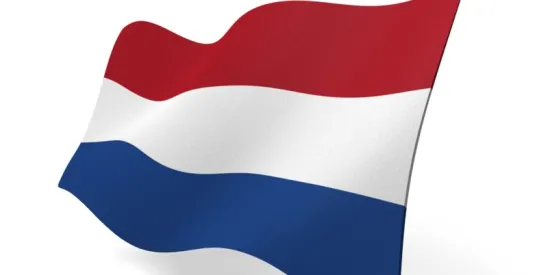| Go-To Guide: |
|
Introduction
Public debate shapes new policy on corporate self-reporting, cooperation and self-investigation
In recent years, the Netherlands has engaged in extensive discussions about self-reporting, cooperation, and the role of corporate internal investigations in criminal cases.1 On Nov. 11, 2024, this culminated in the release of a new policy and guidelines (aanwijzing) addressing these issues in financial economic crime (the Policy).2
Policy considerations require a comprehensive approach
Self-investigations are already common practice, often mandatory to a certain extent in areas like environmental and safety compliance or following serious incidents at regulated entities. In October, Greenberg Traurig Shareholder Francien Rense, a co-author of this GT Alert, set out the advantages of incentivizing self-investigations, including enhanced learning, improved compliance, and more effective enforcement. These self-investigations are typically driven by legal obligations and industry best practices, ensuring companies have a vested interest in conducting thorough investigations that withstand scrutiny.
The new Policy introduces a criminal procedural framework for self-investigations, emphasizing the impact of self-reporting and cooperation in criminal proceedings. Accountability is a key element of the Policy and can be demonstrated through cooperation, self-reporting, and self-investigation.
A legal strategy should consider all relevant factors, starting with facts, and including aspects of criminal law, corporate law, and other applicable regulations. The Policy framework can now be added.
View of Policy
The Policy notes that self-investigations help uncover corporate crime and support prevention efforts. It encourages companies to report wrongdoing proactively and to cooperate fully with authorities. Conducting internal investigations (“self-investigation”) is incentivized to promote transparency, accountability, and legal system efficiency. This proactive approach aims for quicker resolutions, benefitting harmed parties. Key incentives for companies include reduced fines and faster, more efficient resolutions of criminal investigations.
Guidance on Self-Reporting
Financial incentive: 25% fine reduction
Companies that self-report issues may receive up to a 25% reduction in fines, applied either in an out-of-court resolution or to the demanded penalty in court proceedings. This reduction does not apply to disgorgement of illicit profits (ontneming wederrechtelijk verkregen voordeel), civil damages, or other financial obligations, which can still be claimed in full.
Conditions for self-reporting
To qualify for reduced penalties, self-reports must meet these conditions:
- Voluntary: The decision to self-report must be made voluntarily.
- Complete: Reports must be comprehensive, covering all relevant illegal activities. Partial reporting can undermine credibility and disqualify the company from incentives.
- Timely: Prompt reporting is essential. Delays may result in losing benefits and could be seen as concealing information.
- Transparent: Companies must provide all relevant data and documents, including information on involved entities and individuals, leads to criminal conduct, and available assets (for recourse purposes).
The conditions aim to foster transparency and accountability and prevent selective self-reporting.
Considerations for Cooperation
Financial incentive: 25% fine reduction
Companies that fully cooperate with investigations can receive a 25% reduction in fines, bringing the total potential reduction to 50%.
Conditions for cooperation
Full cooperation involves:
- Data availability: Companies must proactively supply all pertinent data, preserving it for criminal investigations, including materials abroad. To prevent strategic hiding or overloading information, data must be searchable and provided in a structured, efficient way. Companies must disclose third-party data locations and facilitate access.
- Employee/witness availability: To help investigators gather firsthand accounts and insights, (former) employees must be available for questioning. Employees/witnesses should not be influenced or unnecessarily informed about investigations.
- Asset availability: Companies must disclose and preserve assets to ensure authorities can recover fines and damages.
These conditions promote transparency and aim to prevent strategic obstruction of investigations.
Considerations for Self-Investigation
Financial incentive: Positive impact on discounts
Self-investigations can positively affect the discount factors for cooperation, but no additional discount is provided. The maximum total discount remains at 50%.
Assessment of self-investigation
Authorities will evaluate self-investigations based on the following criteria:
- Fact-finding: Contributions to uncovering facts.
- Harmed parties’ position: Ensuring appropriate safeguarding.
- Thoroughness and reliability: Must be sufficiently thorough and reliable, providing source materials, detailing methods and scope, and updating authorities on progress.
Careful planning and experienced guidance are required to ensure self-investigations could positively impact criminal case resolution.
Testing the Waters
The Policy allows outside corporate counsel to discuss matters with authorities on a no-name basis, helping assess a company’s legal position without risk of information being used against them if the Policy doesn’t apply. This safeguard encourages companies to explore options under the Policy.
Open Questions
While the Policy clarifies Dutch authorities’ stance on self-reporting, cooperation, and self-investigation, some items remain unclear or trigger concern:
- Maximum discount application: The 25% discounts are maximums, but practical application and calculations are unpredictable.
- Timing of investigation: Coordination between self-investigations and authority investigations needs further clarification.
- Employee/individual position: Expectations regarding employee availability for questioning need further clarity and the position of involved individuals requires thorough consideration, safeguarding legal rights.
- Whistleblower protection: Balancing transparency with whistleblower confidentiality requires further guidance.
- Court position: Courts’ adherence to Policy discounts in related criminal proceedings is uncertain.
Conclusion
The Policy offers a framework for self-reporting, cooperation, and self-investigation, promoting transparency and collaboration between companies and authorities to efficiently address financial and economic issues. It seeks to eliminate strategic minimization of cooperation and enhance responsiveness and accountability.



 />i
/>i
